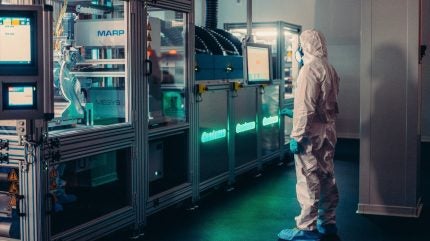
Renault’s electric vehicle (EV) unit Ampere has signed a joint development agreement (JDA) with Stratus Materials.
Under the alliance, Ampere will assess Stratus Materials’ cobalt‑free LXMO (Lithium X Manganese Oxide) cathode active materials (CAM) for potential use in future Renault Group EVs.

Discover B2B Marketing That Performs
Combine business intelligence and editorial excellence to reach engaged professionals across 36 leading media platforms.
LXMO materials will be evaluated at Ampere’s Battery Cell Innovation Lab in Lardy, France.
Stratus CEO Jay Whitacre said: “We are thrilled to have LXMO selected by Ampere and Renault Group as a candidate for deployment into their future vehicle portfolio. Our progress to date with Ampere has been strong and we look forward to delivering on the ongoing JDA and moving together towards full vehicle deployments.”
According to the parties, LXMO‑based cells can achieve energy densities comparable with, or exceeding, those of nickel‑manganese‑cobalt (NMC) chemistries.
They are also said to offer cost and abuse‑tolerance characteristics similar to lithium‑iron‑phosphate (LFP) cells.
At pack level, the combination of higher energy density and improved abuse tolerance is expected to enable energy densities up to twice those of some NMC‑ or LFP‑based battery packs.
Cobalt‑free technology represents the third stage in the EV unit’s battery strategy, following the use of NMC for high energy density and the planned introduction of LFP in Renault‑badged cars from 2026.
Ampere Vehicle & Powertrain Engineering vice president Nicolas Racquet said: “Ampere is looking closely at high energy cobalt-free materials because of their potential advantages compared to incumbent cathode materials.
“Stratus’s LXMO CAMs have gained Ampere’s attention because of their unique and compelling combination of performance, cost, safety, and cycle life.”
Last year Ampere outlined a battery plan that integrates LFP alongside the NMC chemistries currently used by Renault Group and described intentions to establish an integrated European value chain with partners including LG Energy Solution and CATL.






